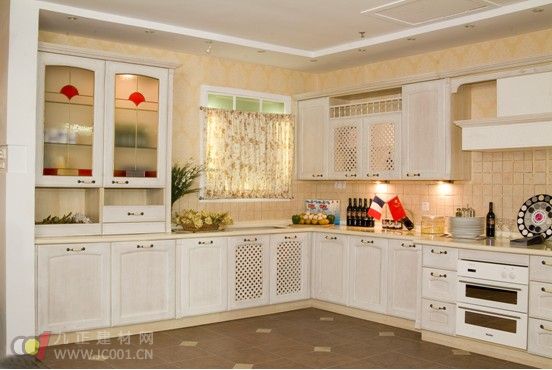Artificial stone has become a popular choice for countertop surfaces due to its numerous advantages. However, the main component of most artificial stone is unsaturated resin, which can lead to expansion and deformation issues. These problems are often caused by the manufacturing process and lack of skill, making them one of the primary reasons for quality concerns in artificial stone countertops. Today, we’ll take a closer look at the pros and cons, as well as the different types of artificial stone countertops, to help you make an informed decision and maintain your countertops properly. Advantages: One major benefit of artificial stone is that it doesn’t suffer from color variation, so you don’t have to worry about mismatched tones when purchasing. Its surface is non-porous, making it resistant to oil and water stains, and easy to clean. Artificial stone is made using processed stone powder, which makes it thinner and lighter than natural stone. This reduces the load on cabinets and helps extend their lifespan. Another advantage is seamless splicing. When installing long countertops or those with corners, artificial stone can be cut into various shapes and joined without visible seams. After polishing, it offers a smooth and elegant finish that enhances the overall design. Artificial stone is also more environmentally friendly. It’s a composite material made from natural ore powders, high-performance resins, and pigments. The resin formulation includes functional additives that make it safe for food contact. This makes it an excellent choice for eco-conscious consumers. Disadvantages: Artificial stone isn't completely scratch-resistant. Its hardness typically ranges between 85 and 62 on the Barthic scale, meaning it can be damaged by sharp objects like metal knives. However, these issues can often be repaired if caught early. Types of Artificial Stone: Resin-based artificial stone (unsaturated resin + filler) is the most common type. It’s affordable, with prices usually under 800 yuan per meter. The cost may vary depending on the quality of the resin and fillers used. Composite artificial stone contains MMA components, but it's less commonly used due to higher costs and limited recognition. Testing is recommended to confirm the presence of acrylic components, as this can affect product integrity. Acrylic artificial stone, such as DuPont Corian, is known for its flexibility. It can be bent and shaped after heating, making it ideal for custom designs. However, it comes at a higher price, typically ranging from 1800 to 2500 yuan per meter. As a consumer, it's important to avoid being misled by "almost" solutions and not settle for a sloppy appearance. Paying attention to details can help you identify quality differences. Here are some key points to check: First part: Check the backwater area where the countertop meets the wall. Is the curvature smooth and natural? Second part: Look at the edge of the under-counter sink. Are the edges uniform, symmetrical, and centered? Third part: Examine the internal corners. Are they reinforced with support structures to prevent cracking or warping? The quality of artificial stone countertops depends heavily on the craftsmanship and installation process. Different methods and skills can result in varying levels of quality and value. Therefore, it's essential to be attentive and informed when making your purchase. Customized Valve Balls,Solid Three Way Trunnion Valve Spheres,Hollow Three Way Valve Spheres,Steel V Opening Valve Spheres WENZHOU ZHENHONG VALVE BALL CO., LTD , https://www.zhvalveball.com